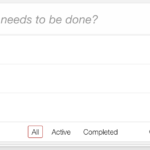
Which Language to Select for Your AI Project?
- softscribble@gmail.com
- June 5, 2024
- Software development
- 0 Comments
Hey there! If you’re diving into the exciting world of artificial intelligence (AI), you’ve probably encountered the age-old debate: Python vs. Java. Both are powerful languages with their own strengths and weaknesses, but when it comes to AI projects, which one should you choose? Let’s break it down in this guide, so you can make an informed decision for your next big venture.
Understanding Python and Java
Before we delve into their suitability for AI projects, let’s get a quick refresher on what Python and Java bring to the table.
- Python: Python has gained immense popularity in the AI and machine learning (ML) community due to its simplicity, readability, and vast array of libraries tailored for AI development. Libraries like TensorFlow, PyTorch, and scikit-learn have made Python the go-to language for AI enthusiasts.
- Java: Java, on the other hand, is known for its robustness, scalability, and platform independence. While it might not be as commonly associated with AI as Python, Java still has its merits, especially when it comes to building large-scale, enterprise-level applications.
Speed and Performance
When it comes to AI, performance is crucial, especially for tasks like data processing, training large models, and running complex algorithms. In terms of raw speed, Java often outperforms Python. Java’s statically-typed nature and Just-In-Time (JIT) compilation allow for faster execution of code compared to Python’s interpreted nature.
However, Python’s extensive collection of AI-focused libraries and frameworks often make up for its performance drawbacks. Libraries like NumPy and TensorFlow have been optimized to leverage the computational power of underlying hardware, mitigating Python’s speed limitations to a great extent.
Development Speed and Ease of Use
Python takes the cake when it comes to development speed and ease of use. Its simple syntax and dynamic typing make it incredibly easy for beginners to pick up and start building AI applications in no time. Additionally, Python’s interactive shell and vast ecosystem of third-party packages make prototyping and experimentation a breeze.
Java, while more verbose than Python, offers a strong typing system and comprehensive IDE support, which can be beneficial for large-scale projects with multiple developers. However, the steep learning curve and boilerplate code often make Java less appealing for AI prototyping and experimentation.
Community and Ecosystem
Python’s vibrant community and extensive ecosystem of libraries and frameworks give it a significant edge over Java in the AI domain. From image recognition to natural language processing, you’ll find a Python library for almost every AI task imaginable. The community-driven development model also ensures regular updates and improvements to existing libraries, keeping Python at the forefront of AI innovation.
While Java’s AI ecosystem might not be as extensive as Python’s, it still offers some noteworthy libraries and frameworks like Deeplearning4j and Weka. Additionally, Java’s robustness and scalability make it a preferred choice for AI projects in industries like finance, healthcare, and telecommunications, where reliability and performance are paramount.
Integration and Deployment
Integration with existing systems and deployment to production environments are crucial aspects of any AI project. Python’s seamless integration with popular technologies like web frameworks (Django, Flask), databases, and cloud services (AWS, Google Cloud) makes it an ideal choice for building AI-powered applications that can easily interact with other components of your infrastructure.
Java, with its mature ecosystem and support for enterprise integration patterns, excels in building AI systems that need to seamlessly integrate with existing Java-based systems. Moreover, Java’s platform independence and robust deployment options make it well-suited for deploying AI models to a wide range of environments, from on-premises servers to cloud platforms.
Conclusion
So, which one should you choose for your AI project: Python or Java? The answer largely depends on your specific requirements, skillset, and the nature of your project.
- Choose Python if you prioritize development speed, ease of use, and access to a vast array of AI libraries and frameworks. Python is an excellent choice for prototyping, experimentation, and building AI applications that require quick iteration and exploration of ideas.
- Choose Java if you prioritize performance, scalability, and robustness, especially for building large-scale, enterprise-level AI systems. Java is well-suited for projects where reliability, maintainability, and integration with existing systems are key considerations.
Python and Java each possess distinct advantages and drawbacks in the realm of AI development. By understanding the unique features of each language and assessing your project requirements carefully, you can make an informed decision that sets you up for success in your AI endeavors. So, go ahead, pick your weapon of choice, and embark on your journey to conquer the realm of artificial intelligence!
Contact Softscribble for your software Requirement
Contact Now






